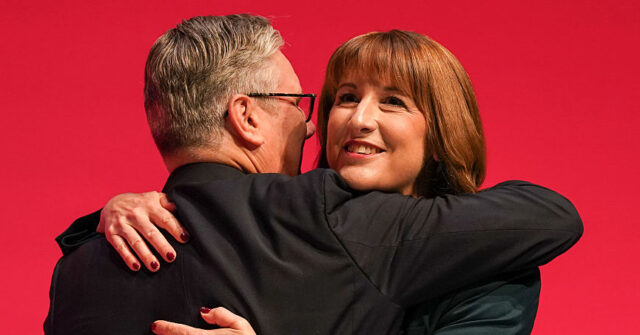Tax raids on people they deem to be “wealthy” will be “part of the story” at the national budget next month, the UK’s Chancellor told the International Monetary Fund (IMF).
The British government feels it needs to raise at least an extra £20 billion after it gave up on welfare reform over internal resistance from within the ruling Labour Party, and over poor economic forecasts eroding natural predicted growth of the tax take. Constrained by an election-time promise not to increase taxes on “working people” that sophistry might succeed in arguing they have managed to keep so far, Chancellor Rachel Reeves has said the focus will be on squeezing “wealthy people”.
The Times states she told the IMF this week that “I do think that those with the broadest shoulders should pay their fair share of tax” and that new taxes on wealth would be “part of the story”.
These would most likely be taxes on assets and consumption rather than income, as “Wealth is obviously different from income. So wealth is not about your annual salary”, she said. Reeves pointed to new taxes already levied last year that she says proves she can wok without simply “introducing a wealth tax”.
The problem for Britain as it approaches the November 26th budget is perceptions on what exactly counts as wealthy, who gets to decide, and how these definitions move with time and inflation. One of the measures Reeves cited from her 2024 budget was slapping a 20 per cent tax on private school education for children, playing to leftist prejudice that anyone who can afford the fees can also afford to shrug off a one-fifth price hike.
Unfortunately for Reeves’ projected tax take from this raid, and for many families impacted, not all users of privately-funded education are extremely wealthy and as is so often the case with government policy, the ‘squeezed middle’ of middle class professionals on survivable but not generous salaries were hit hardest. Indeed, once the policy was in effect the number of children being forced to leave the private school sector was considerably higher than the government had estimated.
Those thousands out of private education was a double-whammy for the government, as in addition to the extra tax they believed they’d be collecting from their spending on education, those children were in many cases then enrolled into the state-funded education system, at a cost of tens of thousands of pounds each.
There is also a very real risk that taxes introduced to clobber the wealthy now, will in the future be used against the middle and even working classes. The British government over many years — under both Labour and the Conservatives — has proven itself addicted to a form of stealth taxation called fiscal drag, where the cash-value boundaries for tax bands are never updated.
While the impact of this may be imperceivable to individual members of the public on a month-to-month or annual basis, over the course of years and decades it has wrought enormous change to the British fiscal landscape. As previously reported of this dishonest but now totally normalised dealing:
…[taxes] soar automatically by having arbitrary income tax bands and not adjusting them, as a just state would, as incomes rise with inflation.
The impact of this, which has been going on for decades but has reached “totally unprecedented” levels under the present Conservative administration, is best seen in the upper tax bracket, which was first created decades ago to punish the super-wealthy. Today, a failure to adjust the threshold as inflation soars has seen upper-working and middle-class occupations like teachers, nurses, and police officers dragged into the punishment band.
As late as 2003 not a single nurse in the UK paid tax in the top band, but a decade later tens of thousands did, and now hundreds of thousands do. Nurses are not meaningfully any wealthier in 2023 than 20 years ago, but they are taxed more.
By 2028, it is thought a fifth of all taxpayers will be paying the 40 per cent higher tax rate once meant only for the very wealthy.
Last year, when the UK’s Labour government last raised taxes, it defended its intentions by expressing them as essential and decrying anyone opposed to the notion as “populists” offering “easy answers”. Labour had started by promising welfare reform to save money, but this idea was quickly defeated by its own party, with the internal rebellion against the Starmer cabinet so ferrocious the tax-hiking Chancellor Reeves was seen in Parliament in floods of tears.
Read the full article here
